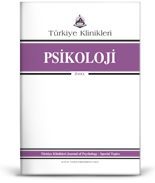Bilinç; gerçek zamanlı ve spontan ya da tasarlanmış zihinsel eylemlerin, normatif ve yapılandırılmış entegratif içsel ve dışsal değerlendirmeler yoluyla hem geçmiş hem de gelecekteki olası durumlara göre içinde yaşanan an odaklı optimize edilmesiyle deneyimlenerek kontrol edilebilen çok bileşenli psikojen bir fenomendir. Öznel ve nesnel harmonisiyle kişiye özgü bir deneyim olan bilincin tekilliği, deneysel açıdan doğrulanabilecek bir fenomen değildir. Bilincin bir 'tekillik yaşantısı' sayılmasına ilişkin bütün kısıtlamalar ve eleştiriler karşısında 'çoklu bilinç sistemi' merkezli 'Psikotoplumsal Bilinç Alyansı Kuramı'nın inşası bir zorundalık haline gelerek bu konuda yakınsak ve bütünsel bir metodoloji ile birlikte 'derin bilinç' kavramını da içeren alternatif bir yaklaşım olarak Öztürk tarafından önerilmiştir. Aynı zamanda bu çalışmada Öztürk, 'Dissosiyatif Yansıtımlı Kimlik Geçişi Kuramı' ile 'İnkar Travması' ve 'Travma Dikotimisi' fenomenlerini yapılandırmıştır. Dissosiyatif yansıtımlı kimlik geçişi, kişinin kendi kimliğinin özvarlanışındaki reddettiği parçalarının bir başkasının kimliğine zorla empoze edilmesi arzusunu bir 'gerçeklik içbilişsel çarpıtması' ekseninde eyleme dönüşmesidir. Travmatik yaşam deneyimlerinin yok farz edilmesinin yarattığı dissosiyatif kuşatmanın bireyi mutlak gerçekliğin idrakinden uzaklaştırarak farklı ve çoklu gerçekliklere hapsetmesi, inkar travmasının ta kendisidir! İnkar kadar bireyleri ve toplumları hem gerçeklikten, hem bilinçlerinden hem de kendilerinden uzaklaştıran bir şey daha yoktur ki hatta inkar bir gerçeklik katliamıdır. Gerçeklik fenomenine hissizleşmek ise, düşünce ve davranışlardaki psikovital duygu varlanışından vazgeçmek demektir. Travma dikotomisi, karşılaşılan en sarsıcı olumsuz örselenme ihtimalinin varlanışı esnasında ya da hemen sonrasında bireylerin tekil olduğu varsayılan bilinçlerinin 'dual bilinç sistemi'ne geçiş yapması süreci ve dissosiyojen bir yaşam deneyimidir. 'Psikotoplumsal Bilinç Alyansı Kuramı' ya da diğer ismiyle 'Travmatik Anılardan Uzaklaştırıcı Olağan Yaşam Deneyimleri Kuramı' ülkemizin ilk dissoanalisti olan ve beş binin üzerinde dissosiyatif bozukluk vakalarının psikoterapilerini yüksek bir başarı ortalaması ve kesinleşmiş pozitif tedavi sonuçlarıyla tamamlayan Öztürk tarafından 2017-2022 yılları arasında geliştirilmiştir. Bilinç kavramına ve travmatik yaşantılarla eşlenik çoklu bilinç sistemi fenomenine dair bireysel ve toplumsal her ögeyle en yakın etkileşimsel dinamiğe sahip bir eksende yapılandırılan 'Dissoanaliz Kuramı', bir travma terapisti, bir psikotarihçi ve bir dissoanalist olan Öztürk'ün uzun dönemli dissoanalitik yönelimli klinik ve teorik çalışmalarından bilimsel köken almıştır. Bu kuramdaki ana kavramlar Öztürk tarafından yine kendi geliştirdiği 'Dissoanaliz Kuramı' yönelimindeki paradigma ve modaliteler ışığında yaratıcı, yansıtıcı ve hem ıraksak hem de yakınsak bir düşünme stili odağında tanımlanmış olup bu kuramla ilişkili ikincil kavramlar ise, hermenötik ve entegratif bir yaklaşımla yeniden analiz edilmiştir.
Anahtar Kelimeler: Dissoanaliz kuramı; psiktoplumsal bilinç alyansı; dissosiyatif yansıtımlı kimlik geçişi; dissosiyasyon; psikotravmatoloji; inkar travması; psikokomünal dissosiyasyon; sosyal dissosiyasyon; toplumsal dissosiyasyon; çoklu bilinç sistemi; travma dikotomisi; hipotetik inkar; kitlesel dissosiyasyon; psikotoplumsal terapi
Consciousness is a multi-component psychological phenomenon that can be experienced and controlled by optimizing real-time and spontaneous or designed mental actions through normative and structured integrative internal and external evaluations, focusing on the present, according to both past and future possible situations. The singularity of consciousness, which is a personal experience with its subjective and objective harmony, is not a phenomenon that can be verified experimentally. In the face of all the restrictions and criticisms regarding consciousness as a "singularity experience", the construction of the "Theory of Psychosocial Consciousness Alliance" based on "multiple consciousness system" has become a necessity; and an alternative approach, which includes the concept of "deep consciousness" along with a convergent and holistic methodology, has been proposed by Öztürk. The 'Theory of Dissociative Projective Identity Transition', 'denial trauma' and 'trauma dichotomy' were also structured by Öztürk. Dissociative projective identity transition refers to the transformation of the desire of one person to impose the parts that they reject in their own identity to another's by force into action, on the axis of an "internal cognitive distortion of reality". The dissociative siege created by the ignoring the traumatic life experiences, keeping the individual away from the realization of absolute reality and imprisoning them in different and multiple realities, is the denial trauma itself. There is nothing that distances individuals and societies from reality, their consciousness and themselves as much as denial. Denial is a massacre of reality. To become numb to the phenomenon of reality, on the other hand, means to give up the psychovital emotional presence in thoughts and behaviors. Trauma dichotomy is a dissociative life experience and the process of transition of individuals' supposedly singular consciousness to the "dual consciousness system" during or immediately after the most shocking possibility of trauma encountered. The 'Theory of Psychosocial Consciousness Alliance' or the 'Theory of Traumatic Memory Repellent Ordinary Life Experiences' was developed by Öztürk between 2017-2022, the first dissoanalyst of our country, who completed the psychotherapy of over five thousand dissociative disorder cases with a high success average and definite positive treatment results. The "Theory of Dissoanalysis", structured on the axis that has the closest interactional dynamic with every individual and social element regarding the concept of consciousness and the phenomenon of the multiple consciousness system conjugated with traumatic experiences, has a scientific origin from the long-term dissoanalytically oriented clinical and theoretical studies of Öztürk, a trauma therapist, psychohistorian, and dissoanalyst. The main concepts in this theory were defined by Öztürk in a creative, reflective and both divergent and convergent thinking style in the light of the paradigms and modalities in his "Theory of Dissoanalysis", and the secondary concepts related to this theory were theorized and reanalyzed with a hermeneutic and integrative approach.
Keywords: Theory of dissoanalysis; psychosocial consciousness alliance; dissociative projective identity transition; dissociation; psychotraumatology; denial trauma; psychocommunal dissociation; social dissociation; societal dissociation; multiple consciousness system; trauma dichotomy; hypothetical denial; mass dissociation; psychosocial therapy







.: İşlem Listesi